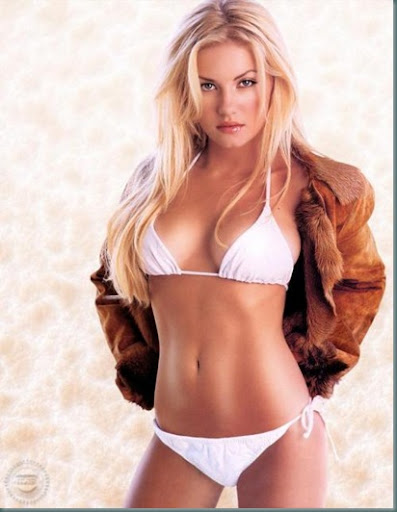(For the record, this review contains a spoiler for the end of Time Bandits. But if you haven't seen that supreme and pure fantasy, go away and watch it right now and don't let me catch you reading my blog until you have)
Terry Gilliam's Tideland is a movie that deserved, and deserves, a much better reception than it got in the theaters, to which it was barely released, and from the critics, who found it "disturbing and mostly unwatchable." Stupid Richard Roeper said it nearly made him walk out of the theater, which ought to be recommendation enough right there.
Disturbing it certainly is, not all in a bad way, but it comes to an end which is dramatically satisfying. Unwatchable it most emphatically is not. I'll believe Terry Gilliam is capable of making an unwatchable film when I believe I'd turn down an "indecent proposal" from Halle Berry.
This one has one or two images that reminded me why I've always felt he was one of only two directors who could do Neil Gaiman's Sandman justice . (Peter Jackson is the other, if you want to know, an opinion I've held since before Lord of the Rings)
Tideland is wrongly labeled a science fiction/fantasy film at some sites, including Rotten Tomatoes. This is wrong. The film is no more an SF or fantasy film than our lives are just because sometimes we all fall into our own fantasy worlds.
On DVD, the movie starts with an introduction from Gilliam that is not optional (you don't select it, it just comes up when you start the film). In this, he acknowledges that most people will not like the film, and talks a little about his hopes for it.
I kind of wish he hadn't felt the need to do that. A movie should stand on its own. On the other hand, it's the kind of audacious move I expect from him as a filmmaker-as most of you know, Terry Gilliam movies are a few of my favorite things.
At the end of the introduction, Gilliam says that at the age of 64, as he was at the time he made this film, he thinks he finally found his inner child. And it turned out to be a little girl.
(Boy, I sure know what that's like, baby)
The girl is Jeliza-Rose. When we first meet her, she's living as the enabling daughter of two drug-addicted parents (played by Jeff Bridges and Jennifer Tilly, but it's not really about them).
Then her mother dies, and her father takes her on a trip far away, to the house where he grew up. But that was a long time ago; the house is the middle of nowhere and in a state of great disrepair.
And soon, her father departs himself on his own trip.
And Jeliza-Rose is left alone.
What follows is how she copes with a world which is increasingly turning crazy and dangerous. And how her imagination acts both as her source of escape and as her protector.
Members of Gilliam's cult of fans like myself will be able to make connections with other child heroes in his work, like Sally in Munchhausen and Kevin in Time Bandits. It's Sally's role in her film to keep the Baron going when all seems lost. And Kevin comes home to find a world in which his parents promptly explode. But Gilliam keeps Jeliza an individual, and the pain she faces could conceivably make Sally and Kevin curl up and die.
In a way, this story is about what might have happened if Kevin's parents exploded at the beginning of the picture instead of the end. Jeliza has to keep herself going, her Baron falls down no matter how many attempts she makes to prop him up.
Jeliza is played in one of the great unflinching child performances by Jodelle Ferland, for which the young Canadian actress was nominated for a Genie (that's Canada's Academy Award). Which is only right-if we don't stay with her character, the movie doesn't work, and Ferland carries it off shiningly.
Do not listen to anything else you've heard until you see this movie for yourself. Is it perfect? Oh hell, no. It's not a masterpiece like Gilliam's best work with the Python team, or a gem like his own Munchausen or Time Bandits.
But it is the best film he's made since Fisher King, and in many ways his most mature.
Subscribe to:
Post Comments (Atom)










No comments:
Post a Comment